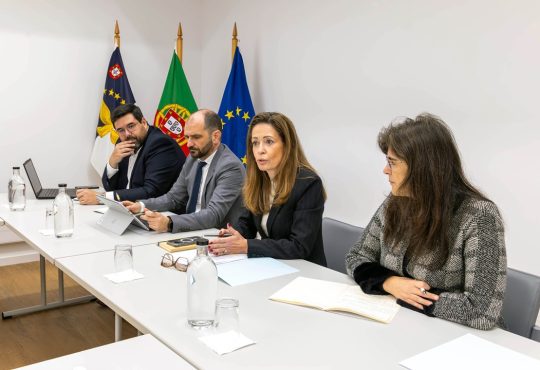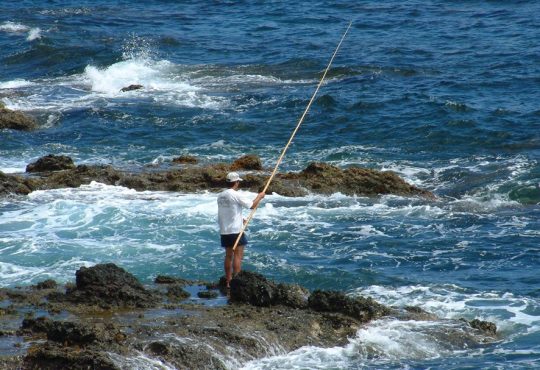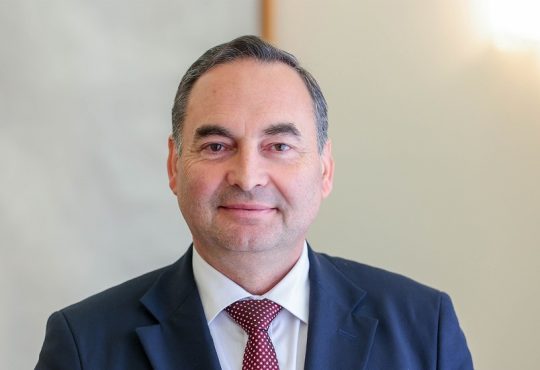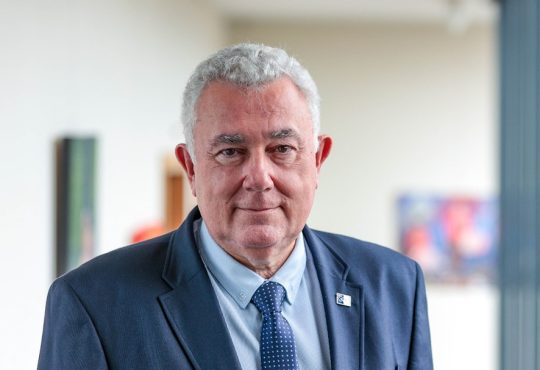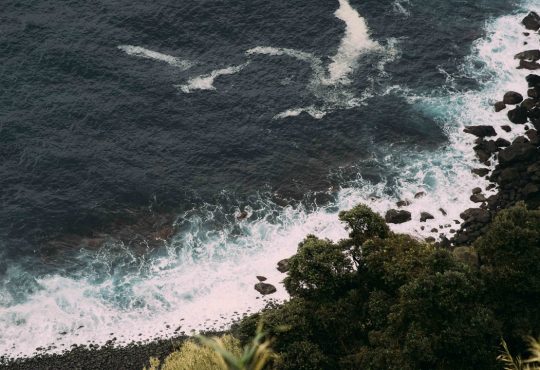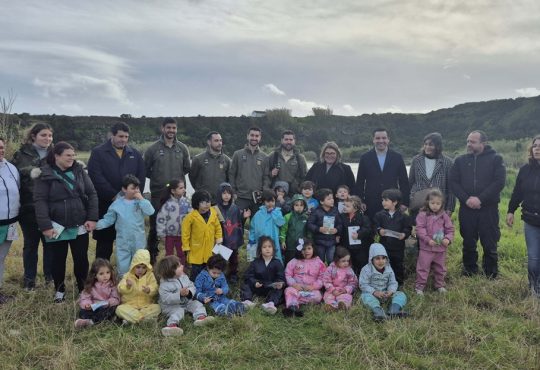NEW’S | President of the Government marks beginning of construction of research vessel for the Azores in Vigo
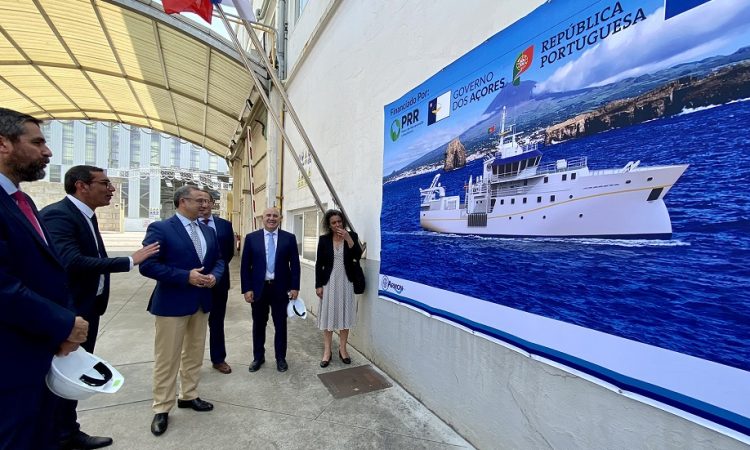
The President of the Regional Government of the Azores, José Manuel Bolieiro, accompanied by the Regional Secretary for the Sea and Fisheries, Manuel São João, marked on Tuesday the official signing of the contract for the construction of the research vessel for the Azores.
The ceremony took place in Vigo at the facilities of the Armon shipyard, which will be responsible for the construction of the vessel. According to José Manuel Bolieiro, the event was a “historic day.”
“We are making history here today, in this simple gesture, which is worth recording, considering the expectation that we have in the near future,” said the President of the Government, who was also accompanied by the shipyard managers and two members of the Mission Structure Recover Portugal.
“The future of humankind, and here we have this Iberian project again, scoring points in a vision for the future, is about sustainability through research and science that allows us to enhance not an extractive economy but rather an economy that leverages existing resources, enhancing their value,” stated the President of the Regional Government.
And he specified, addressing the managers of the shipyard, which has already built vessels for Atlânticoline: “There is a scientific and research reality here that we are building together, but there is still a long way to go, also within the framework of the RRP. We are counting on your services, your knowledge and your capabilities.”
The research vessel has a budget of about 20 million Euros, plus VAT at the legal rate in force, and is financed under the Recovery and Resilience Plan (RRP).
The deadline for the design, construction and delivery of the vessel is set at 900 days and includes the deadline for delivery of the vessel project for approval by the competent national entities and the Ship Classification Society. It also includes the deadline for the completion of the construction, outfitting and delivery of the vessel to the Horta port.
The multidisciplinary scientific research vessel that the Autonomous Region of the Azores intends to build aims to provide the Region with a technological platform for accessing the deep sea of the central north-east Atlantic, and in particular the Archipelago’s Exclusive Economic Zone.
The new research platform will have state-of-the-art technological standards in terms of capacity and equipment, in addition to high energy performance.
The vessel will be registered with the Portuguese Flag Register as a research vessel. It will have a minimum manning of twenty persons for global navigation, excluding ice zones, ten technical crew members and ten scientific crew members. Additionally, the vessel will be able to carry a minimum of thirty people on daily voyages.
The new research vessel will operate in areas such as seabed mapping (bathymetry based on acoustic equipment), biological prospecting and exploration of organisms with biotechnological aptitude, provision of support for the development of offshore renewable energy production technologies or training of personnel under the Azores Maritime School.
The vessel will be fitted with electronic acoustic equipment, among other equipment, which will maximise the platform’s research potential to a depth of at least five thousand metres.
With a length of 45.95 metres and a beam of 10.5 metres, the vessel will have an autonomy of 15 days and will have diesel-electric propulsion. It will include cabins corresponding to its maximum capacity, a classroom, laboratories (dry and wet) and a data centre.
This investment falls within the RRP measure – “Research Vessel” – which is part of component C10-i04-RAA – Development of the “Sea Cluster of the Azores.”
GRA/RÁDIOILHÉU



